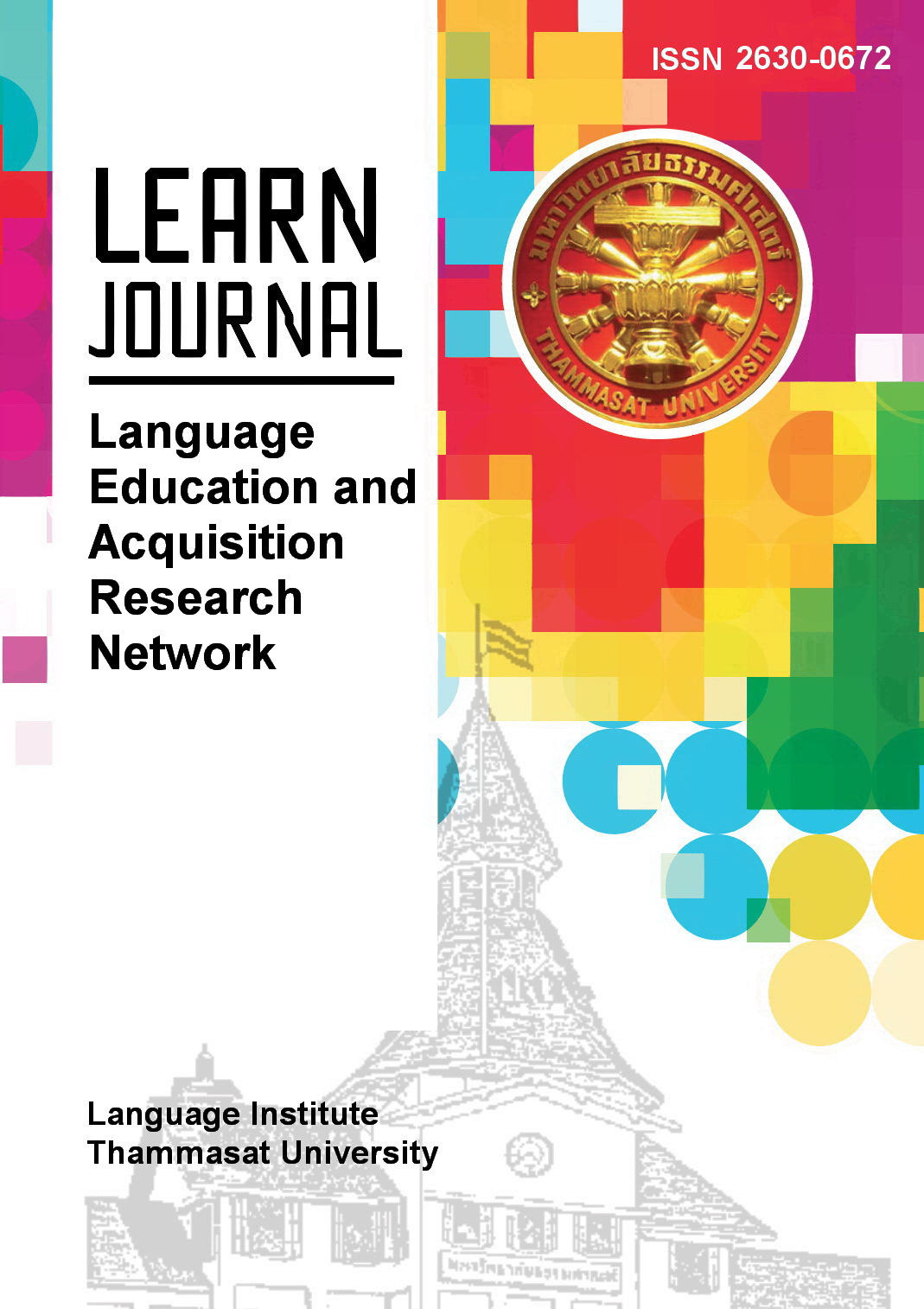Student Motivation and Academic Achievement in Online EFL Classes at the Tertiary Level
Main Article Content
Abstract
This study examines the impact of EFL learners’ learning experiences in a virtual classroom on their academic motivation and achievement. It also explores students’ reasons for changes in their motivations and their perspectives on learning a foreign language online. The study used the explanatory, sequential mixed-methods design. A total of 144 foreign-language learners at a state university in Turkey participated in this study. An online survey was used to collect students’ academic motivation scores at the beginning and the end of an academic term. Ten students from the decreased and the increased motivation groups were recruited for online semi-structured interviews. Besides motivation, students’ language development was measured using pre- and post-test scores on skill-based exams. Correlations show a moderate positive correlation between motivation and academic achievement. Motivation was also a significant predictor of students’ grades. The findings also showed that students’ motivation to learn English in a digital classroom decreased over time. Through thematic analysis of the qualitative data, three major themes emerged: motivation-related factors, negative attitudes towards online learning and the benefits of online learning. One common characteristic was that students would prefer face-to-face learning and they also believed that in-class and out-of-class interactions were limited in online learning.
Article Details
References
Bonacini, L., Gallo, G., & Scicchitano, S. (2021). Working from home and income inequality: Risks of a ‘new normal’ with COVID-19. Journal of Population Economics, 34, 303–360. https://doi.org/10.1007/s00148-020-00800-7
Bonk, C. J. (2020). Pandemic ponderings, 30 years to today: Synchronous signals, saviors, or survivors? Distance Education, 41(4), 589-599. https://doi.org/10.1080/01587919.2020.1821610
Boo, Z., Dörnyei, Z., & Ryan, S. (2015). L2 motivation research 2005–2014: Understanding a publication surge and a changing landscape. System, 55, 145-157. https://doi.org/10.1016/j.system.2015.10.006
Bower, K. (2019). Explaining motivation in language learning: a framework for evaluation and research. The Language Learning Journal, 47(5), 558-574. https://doi.org/10.1080/09571736.2017.1321035
Bozkurt, A., & Sharma, R. C. (2020). Emergency remote teaching in a time of global crisis due to CoronaVirus pandemic. Asian Journal of Distance Education, 15(1), 1-6.
British Council/TEPAV. (2015). The state of English in higher education in Turkey: A baseline study. British Council. https://www.britishcouncil.org.tr/en/teach/elt-publications/he-research
Büyüköztürk, Ş., Akgün, Ö. E., Özkahveci, Ö., & Demirel, F. (2004). The validity and reliability study of the Turkish version of the Motivated Strategies for Learning Questionnaire. Educational Sciences: Theory & Practice, 4(2), 231–237.
Cakir, O., Karademir, T., & Erdogdu, F. (2018). Psychological variables of estimating distance learners' motivation. Turkish Online Journal of Distance Education, 19(1), 163-182.
Cicillini, S., & Giacosa, A. (2020). English-medium instruction lecturers’ and students’ perceptions about the transition from in-person to emergency remote education. European Scientific Journal, ESJ, 16(38), 46-60. https://doi.org/10.19044/esj.2020.v16n38p46
Creswell, J. W. (2011). Educational research: Planning, conducting, and evaluating quantitative and qualitative research (4th edition). Pearson Education International.
Creswell, J. W., & Plano Clark, V. L. (2018). Designing and conducting mixed methods research (3rd ed.). SAGE.
Dörnyei, Z. (1994). Motivation and motivating in the foreign language classroom. The Modern Language Journal, 78(3), 273-284. https://doi.org/10.2307/330107
George, D., & Mallery, P. (2019). IBM SPSS Statistics 25 step by step: A simple guide and reference (15th ed.). Routledge.
Hernández, S. S. F., & Flórez, A. N. S. (2020). Online teaching during Covid-19: How to maintain students motivated in an EFL class. Linguistics and Literature Review, 6(2), 157-171. https://doi.org/10.32350/llr.62.14
Hodges, C., Moore, S., Lockee, B., Trust, T., & Bond, A. (2020). The difference between emergency remote teaching and online learning. Educause Review, 27, 1-12.
Hu, X. (2020). Building an equalized technology-mediated advising structure: Academic advising at community colleges in the post-COVID-19 era. Community College Journal of Research and Practice, 44(10-12), 914-920. https://doi.org/10.1080/10668926.2020.1798304
Kılıç, M. E., Kılıç, M., & Akan, D. (2020). Motivation in the classroom. Participatory Educational Research, 8(2), 31-56. https://doi.org/10.17275/per.21.28.8.2
Laachir, A. (2019). The use of e-learning in foreign language learning: A case study of undergraduate EFL students. International Journal of Language and Literary Studies, 1(3), 30-42. https://doi.org/10.36892/ijlls.v1i3.79
Lamb, M. (2017). The motivational dimension of language teaching. Language Teaching, 50(3), 301-346. https://doi.org/10.1017/S0261444817000088
Lasagabaster, D. (2011). English achievement and student motivation in CLIL and EFL settings. Innovation in Language Learning and Teaching, 5(1), 3-18. https://doi.org/10.1080/17501229.2010.519030
Mohammadi, N., Ghorbani, V., & Hamidi, F. (2011). Effects of e-learning on language learning. Procedia Computer Science, 3, 464-468. https://doi.org/10.1016/j.procs.2010.12.078
Pastor, C. K. L. (2020). Sentiment analysis on synchronous online delivery of instruction due to extreme community quarantine in the Philippines caused by COVID-19 pandemic. Asian Journal of Multidisciplinary Studies, 3(1), 1-6.
Pintrich, P. R., Smith, D. A. F., Garcia, T., & Mckeachie, W. J. (1993). Reliability and predictive validity of the Motivated Strategies for Learning Questionnaire (MSLQ). Educational and Psychological Measurement, 53(3), 801–813. https://doi.org/10.1177/0013164493053003024
Rapanta, C., Botturi, L., Goodyear, P., Guardia, L., & Koole, M. (2020). Online university teaching during and after the Covid-19 crisis: Refocusing teacher presence and learning activity. Postdigital Science and Education, 2, 923–945. https://doi.org/10.1007/s42438-020-00155-y
Rinekso, A. B., & Muslim, A. B. (2020). Synchronous online discussion: Teaching English in higher education amidst the Covid-19 pandemic. Journal of English Educators Society, 5(2), 155-162. http://doi.org/10.21070/jees.v5i2.646
Soodmand Afshar, H., Rahimi, A., & Rahimi, M. (2014). Instrumental motivation, critical thinking, autonomy and academic achievement of Iranian EFL learners. Issues in Educational Research, 24(3), 281-298.
Sung, K-Y. (2013). L2 motivation in foreign language learning. Journal of Language and Linguistic Studies, 9(2), 19-30.
Zhao, C., & Mei, Z. (2016). A case study of American and Chinese college students' motivation differences in online learning environment. Journal of Education and Learning, 5(4), 104-112. http://dx.doi.org/10.5539/jel.v5n4p104


